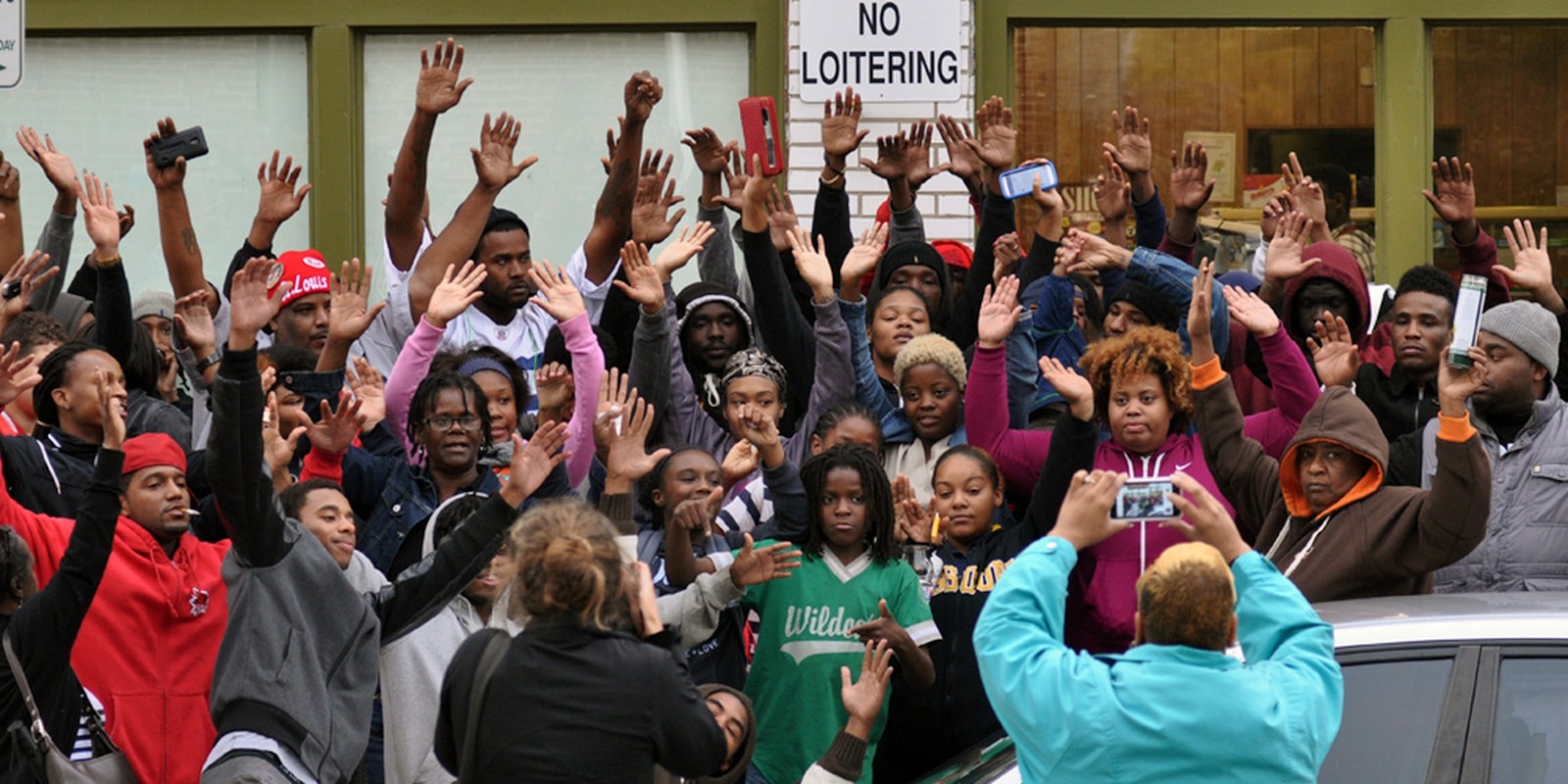After nearly 10 months and an estimated 10,000 hours of work, a commission formed by Missouri’s governor after the fatal shooting of Michael Brown released a report on Monday underlining the racial and economic inequalities in the St. Louis region.
Addressing the racial divide highlighted by more than a year of mass demonstrations, the Ferguson Report spells out in plain English a daunting list of complex economic, housing, and judicial problems, to name a few. The report also emphasizes the need for sweeping police reforms, including the need for more rigorous training, civilian review boards, and less use of force.
The 198-page report, officially titled “Forward Through Ferguson: A Path Toward Racial Equity,” advises numerous changes to the region’s education and healthcare systems; as well as increasing the minimum wage and expanding Medicaid eligibility.
“Our primary audience for this report is the people of the St. Louis region,” the authors wrote. “The report is directed to the average citizens whose daily lives are affected by the issues we explored, and whose lives will be impacted by the calls to action we make. With that in mind, we have written this report to speak to an audience of average citizens—not lawyers, legislators, academics, politicians, or policy wonks.”
The commission’s 16-member board is co-chaired by Rev. Starsky Wilson, president & CEO of the faith-based Deaconess Foundation, and former UniGroup president Rich McClure, now the chairman of the St. Louis Regional Board of Teach for America. The independent group was appointed by Missouri Gov. Jay Nixon in November to conduct a “thorough, wide-ranging and unflinching study of the social and economic conditions that impede progress, equality and safety in the St. Louis region.”
With regards to police’s use of force, the issue most prominent in the media when it comes to Ferguson, the commission outlined a number of proposals including assigning the state’s attorney general as a special prosecutor in all use-of-force cases resulting in death; establishing a database for complaints and other use-of-force statistics; and updating police policies to align with a Supreme Court ruling which states that an officer cannot use deadly force unless there is probable cause to believe that a suspect poses “a significant threat of death or serious physical injury to the officer or others.”
The report also calls for the development of a “comprehensive demonstration response plan,” which outlines protocols for police when engaging protesters. Above all else, the commission asks that officers prioritize the preservation of human life. The police are asked to respect the role of credentialed journalists in a protest area, “allowing them to perform their constitutional duties freely without arrest.” The commission further recommends that police departments revise their policies and training to “authorize only the minimal amount of force proportional to the incident.”
Moreover, the report calls on the government to establish school-based health centers, reform school disciplinary policies, fund job training programs, and put an end to predatory lending practices. In a section focused on transparency in record-keeping, the commission calls on the state legislature to provide funding to enforce laws related to municipal governance, and “establish formal and uniform systems of documentation and record keeping at every stage of a defendant’s’ court involvement.”
While an impressive and painstaking dissection of the need for reforms across the board in Missouri, a few prominent members of the Ferguson community have expressed doubt, or at least concern, over whether the commission’s words will ever be translated into action.
The website created to host the report, for instance, is peppered with fascinating statistics; if it hadn’t been for a racial income gap, it says, the St. Louis GDP would have increased by several-billion dollars. But while underlining such significant economic issues remains vital, it’s unclear how most of the information will be directly used by the state and local government to fix the immediate concerns of its community.
“What this group has done over the last year has just put into written form what so many people have already voiced for years about change that needs to happen in the St. Louis region, but identifying a problem and fixing it are different,” Antonio French, a St. Louis alderman who’s demonstrated in Ferguson, told the New York Times.
Maria Chappelle-Nadal, a Democratic state senator, expressed similar doubts over whether the findings would help the community. “The practicality of getting any of this done is close to null,” she said.
In an open letter, the commission’s co-chairs write that they intend to continue updating the website so it can become “an evolving, vital engine for engagement and impact.”
Photo via Loavesofbread/Wikimedia Commons (CC BY SA 4.0)
